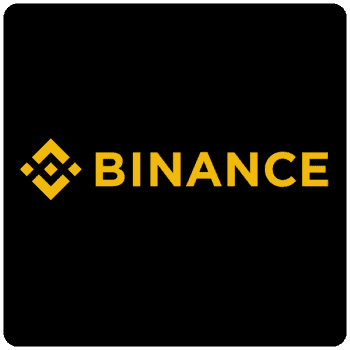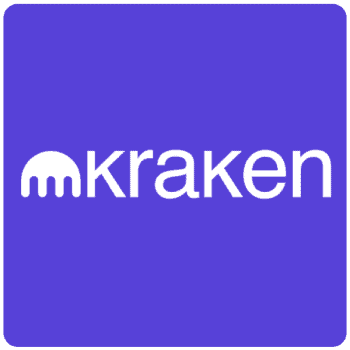Crypto exchanges in Canada
Canadians have a wide variety of top crypto exchanges to choose from, whether that be a simple exchange offering the ability to buy Bitcoin with a credit card or a multi-asset exchange that lets you buy and sell a combination of cryptos, FIAT currencies, equities and even precious metals such as gold, silver, palladium and platinum. There’s a great selection of options with some Canadian crypto exchanges being world renowned for their low fees, comprehensive security measures, staking programs with high APYs and payment methods.
Best crypto exchanges in 2024
Best by category
| Fees | Binance |
| Cryptocurrencies | Binance |
| Best for beginners | Kraken |
| Rewards | Crypto.com |
| Overall | Binance |
How we rate crypto exchanges?
Most of the top crypto exchanges in Canada meet all the requirements except for Coinmama, Ibinex and Crypto Voucher, all of which have next to no security measures in place and don’t offer APYs through a staking program.
Security
Systematic security measures both on a platform and network level are paramount when determining the best crypto exchange in Canada. We check if the exchange:
- Runs a bug bounty program
- Holds customers assets’ 1:1 in custody or in cold storage
- Has end-to-end data encryption
- Limits withdrawals to certain IP addresses through account controls
- Uses biometric multi-factor authentication in order to protect transactions
- Is secured by PCI DSS
- Conducts annual third-party audits
- Implements 24-to-48 hour account freezes
- Has an internal security team in place
- Complies with Anti-Money Laundering (AML) controls
- Secures customers’ assets through Federal Deposit Insurance Corporation (FDIC) insurance
- Complies with Office of Foreign Assets Control (OFAC) standards
- Has secure cages that are under surveillance by armed guards, alarm systems or video monitors
- Has granular API key permissions
- Has PGP signed and encrypted email
- Has ISO 22301:2019, ISO/IEC 27701:2019 or ISO/IEC 27001:2013 certifications
Fees
Trading fees are a crucial part of the investing experience and many traders tend to select the best Canadian crypto exchanges based on their fee structures.
For example, the 0.60% Coinbase taker fee would affect high-volume traders as the charge is applied to every single transaction made. Similarly, Uphold charges a very high service fee of up to 1.95% for cryptos which affects the trader and it’s also the only Canadian crypto exchange to charge a 0.75% price protection fee whenever you buy or convert between FIAT currencies.
Payment methods
In an age of increasing digitisation, many people are looking for digital ways to pay beyond just debit and credit card or wire transfer and a versatile range of payment methods can provide a more seamless account experience for traders.
For instance, we look for which crypto exchanges in Canada accept Google Pay and Apple Pay, which most of them do but Binance has by far the most extensive range of available payment methods including SWIFT and Payeer.
Cryptocurrencies
More than ever before, crypto exchanges in Canada are looking to expand their list of available cryptos so that beyond offering large-cap assets like Bitcoin and Ethereum, people can also trade less mainstream cryptos like Shiba Inu, Dogecoin or SafeMoon. We check cryptos because there’s currently over 22,000 in the world, according to CoinMarketCap data and we want to give you an outline of what to expect at all Canadian crypto exchanges.
As the best crypto exchange in Canada, Binance has by far the widest selection of available cryptos at over 350, followed by Crypto.com and Uphold which both offer over 250, while Crypto Voucher offers the lowest, at just eight cryptos.
Features (wallet, rewards, cards)
We’re looking for features such as staking programs with high annual percentage yields (APYs), trading fee discounts and rewards cards when determining the best Canadian crypto exchanges.
Uphold has by far the best staking program with over 32 eligible cryptos on offer that earn APYs of up to 13%, but BitGet has the highest APY on offer which is the Ape crypto at 45%. The other best Canadian crypto exchanges with a large staking selection include Binance with 27 eligible cryptos that come with APYs of up to 16% and Crypto.com with 22 eligible cryptos that come with APYs of up to 12.5%.
Binance and Crypto.com are the only crypto exchanges in Canada to offer trading fee discounts. With Binance, a 25% fee discount is offered for using BNB in trades. With Crypto.com, a 12% fee discount is offered for using CRO in trades.
Binance offers a VISA debit card with up to 8% rewards in BNB every time you make a purchase. The percentage you earn depends on your card tier and BNB holdings. Coinbase offers a VISA debit card with up to 4% crypto rewards on purchases and there are nine available cryptos which earn a specific percentage back.
Crypto.com offers a VISA debit card with up to 5% crypto rewards on purchases, unlimited airport lounge access with Loungekey at over 500 airports, Airbnb and Expedia reimbursement, as well as monthly reimbursement on subscription services from Amazon Prime, Spotify and Netflix.
How to sign up for a crypto exchange account?
All crypto exchanges in Canada require multi-step KYC verification before you can buy, sell or exchange cryptos. Generally, most request the following steps in order to sign up for an account:
- Visit the homepage and input your email address so you can create a password and start the process.
- You then need to verify your email address.
- After verifying your email address, you have to submit personal details such as your full name, date of birth and residential address.
- You then need to enter your phone number to receive an SMS verification text message.
- After verifying your phone number, you have to complete KYC verification.
- Upon successful registration and passing verification, access to all functions of the site including higher limits are available to you.
On a general basis, most crypto exchanges in Canada ask for proof of identity, which can be a drivers license, government-issued ID or passport, as well as proof of address, which can be a utility bill, letter from your local municipality, house rental agreement, tax letter, credit card statement or bank account statement. You’re also asked to provide a clear and visible picture of the front and back side of your documents and all exchanges except Binance request a selfie.
Buy crypto with CashtoCode eVoucher in CAD
Crypto Voucher is the only crypto exchange in Canada that allows you to fund your account with a CashtoCode eVoucher.
- Min deposit: $10.73
Benefits of buying cryptocurrency with eVoucher
- Safe –
- Discreet
- Fast
- Widely available
Other deposit methods at crypto exchanges
You can deposit at most of the crypto exchanges in Canada using VISA, MasterCard, wire transfer, bank transfer, PayPal, Apple Pay or Google Pay. High-volume traders in Canada tend to opt for bank transfer as a deposit method but the Canadian mobile POS payments sector is expected to reach $73 billion in 2027 and many traders are also depositing using Apple Pay and Google Pay.
Where are crypto exchanges licensed?
Canada was one of the first countries in the world to legalize crypto back in 2014 and has since become a hub for leading crypto exchanges. Any crypto exchange that’s registered as a Money Service Business (MSB) in Canada is subject to legal guidelines as set by the Crime Money Laundering and Terrorist Financing Act.
Cryptos are classed as securities in Canada so they fall under the purview of the Canadian Securities Administrators (CSA). The laws enacted by CSA aren’t federal in nature, but instead exist on a provincial level so crypto exchanges are regulated differently in each province. However, all crypto exchanges must be in compliance with the guidelines set in each particular jurisdiction by the respective Canadian securities regulator:
- The Alberta province is regulated by the Alberta Securities Commission
- The British Columbia province is regulated by the British Columbia Securities Commission
- The Saskatchewan province is regulated by the Financial and Consumer Affairs Authority
- The Manitoba province is regulated by the Manitoba Securities Commission
- The New Brunswick province is regulated by the Financial and Consumer Services Commission
- The Northwest Territories is regulated by the Northwest Territories Office of the Superintendent of Securities
- The Nova Scotia province is regulated by the Nova Scotia Securities Commission
- The Nunavut province is regulated by the Nunavut Office of the Superintendent of Securities
- The Ontario province is regulated by the Ontario Securities Commission
- The Prince Edward Island province is regulated by the Prince Edward Island Office of the Superintendent of Securities
- The Quebec province is regulated by the L’Autorité des marchés financiers
- The Yukon province is regulated by the Yukon Office of the Superintendent of Securitie
Binance has the highest reach and is registered with Canada’s Financial Transactions and Reports Analysis Centre (FINTRAC) as a Money Service Business (MSB). However, the company has also dealt with the most serious regulatory issues that involve the UK’s Financial Conduct Authority (FCA), Japan’s Financial Services Agency (JFSA) and Thailand’s Securities and Exchange Commission (SEC).
Kraken is another top crypto exchange with a high reach and it’s also registered with Canada’s FINTRAC as a Money Service Business.
Other crypto exchange regulators
- France’s Autorité Des Marchés Financiers (AMF)
- Italy’s Organismo Agenti e Mediatori (OAM)
- Cyprus’s Cyprus Securities and Exchange Commision (CySEC)
- Abu Dhabi’s Financial Services Regulatory Authority (FSRA)
- Australia’s Australian Transaction Reports and Analysis Centre (AUSTRAC)
- Sweden’s Financial Supervisory Authority (FSA)
- Dubai’s Virtual Asset Regulatory Authority (VARA)
- U.S’s Financial Crimes Enforcement Network (FinCEN)
Crypto exchange fees
| Trading | Exchanges charge you fees whenever you buy or sell cryptos within a platform to cover the operational costs of running their trading services. The transaction fee you pay per trade is based on whether you’re a maker (buyer) or taker (seller). For example, Binance’s trading fee structure is tiered, with higher volume trades being subject to lower fees. The highest tier pays a 0.0900% maker fee and a 0.1000% taker fee, while the lowest tier pays a 0.0200% maker fee and a 0.0400% taker fee. Overall, the trading fees for the best crypto exchanges in Canada range from 0.01%-3.95%. A conversion/foreign currency administration fee is a surcharge to convert transactions involving foreign currency into cryptos. Coinbase is the only crypto exchange in Canada to charge a flat 1% fee to convert your crypto into FIAT. A price protection fee gives traders a quote price regardless of market conditions. For example, if you plan to purchase $100 worth of Bitcoin, Uphold charges a 0.75% fee to guarantee that price even when Bitcoin’s price fluctuates on the market. |
| Deposit | A deposit fee is the charge for depositing funds into your account. In our list of the best Canadian crypto exchanges, none charge deposit fees. |
| Withdrawal | A withdrawal fee is the charge for withdrawing funds in FIAT from your account. Some exchanges charge differing rates of withdrawal fees for all of their listed cryptos. For example, BitGet charges a 0.0000051 withdrawal fee for Bitcoin and 0.0001 for Ethereum. Binance is the only exchange to offer cheaper fees if you withdraw funds using BNB at a cost of 0.000005, while Bitcoin, for example, comes with a 0.0002 withdrawal fee and Ethereum, 0.0012. |
| Account | Account/maintenance fees are charges levied by exchanges to cover the annual or monthly costs of keeping your account up and running. In our list of the best Canadian crypto exchanges, none charge account/maintenance fees. |
Types of crypto exchanges
We categorize crypto exchanges based on whether they’re decentralized, centralized or hybrid. Decentralized crypto exchanges operate as online marketplaces connecting crypto buyers and sellers, while centralized crypto exchanges require intermediary entities to facilitate the buying and selling of crypto. In our list of the top crypto exchanges, all fall under the decentralized category.
Decentralized
Decentralized exchanges are peer-to-peer marketplaces that connect crypto buyers and sellers through the use of automated smart contracts. A minority of decentralized exchanges lamentably don’t have KYC verification processes in place but an advantage is that since their platforms are non-custodial, there’s heightened private key security.
Uphold is the only decentralized multi-asset platform and also the most versatile exchange in the sense that it lets you buy and sell a combination of cryptos, FIAT currencies, equities and even precious metals such as gold, silver, palladium and platinum. However, Ibinex is the most linear decentralized crypto exchange in the sense that you can only buy one crypto, Bitcoin, with a credit card but the process is fast at just under three minutes.
On the other hand, Coinbase and Kraken are the most education-focused decentralized crypto exchanges with a wide range of free resources available for traders through their popular online Kraken Learn and Coinbase Learn centers. Ibinex, Crypto Voucher and Coinmama are the least globally well-known decentralized crypto exchanges that have small product catalogs. For example, Coinmama only offers a total of 16 cryptos, while Crypto Voucher has eight available cryptos.
Comparatively, Crypto.com is the most globally publicized decentralized exchange of all in the sense that it has had partnership deals with Hollywood celebrities like Matt Damon. The company also struck a $700 million dollar deal with one of the best known sports and entertainment arenas in the U.S, rebranding its name from The Staples Center to Crypto.com.
Centralized
Centralized exchanges facilitate all aspects of the digital asset trading experience from regulatory compliance to market pricing. They tend to have higher fees than decentralized exchanges but an advantage is that all cryptos are assessed by their internal compliance teams before being listed so you can find mostly mainstream cryptos on their platforms.
Hybrid
Hybrid exchanges combine elements of both decentralized and centralized exchanges for traders.
Crypto wallets vs exchanges
While both crypto wallets and crypto exchanges are used to store crypto – with the terms themselves being used almost interchangeably – the former refers to either hardware or software that enables you to send, receive or store digital assets and the latter refers to an online marketplace that offers crypto trading services. Nevertheless, both crypto wallets and crypto exchanges function as the cornerstone components of the crypto industry.
| Crypto wallets | Crypto exchanges |
|---|---|
| Manage funds on the blockchain | Buy and sell crypto |
| Private keys with seed phrases | Convert and withdraw crypto into FIAT |
| Cold wallets are almost hack-proof | Some secure customers’ funds with FDIC insurance |
| Hot wallets are susceptible to hacks | Modern platform interfaces with top-rated mobile apps |
The primary difference between a crypto wallet and crypto exchange is the use of private keys. Since cryptos live on blockchains, private keys are what grant you access to them and you can think of your private keys as the password to your email account since they function in a similar manner. Even if you lose your phone, you just need to remember your seed phrase in order to log in.
However, since hot wallets are online, they’re more susceptible to hacks while top crypto exchanges tend to have advanced security measures in place to protect all transactions occurring on their platforms. For example, 95% of deposits on Kraken are held in cold storage, using secure cages that are under 24/7 surveillance by armed guards, alarm systems and video monitors. In the event of a hack, crypto wallets offer zero insurance protection, while some exchanges will secure your funds through third-party insurance providers.
Conclusion
Our list showcases the most reputable exchanges in the world such as Kraken, Binance and Crypto.com, with an emphasis on how trading fees, comprehensive security measures, available cryptos, features such as staking programs with high APYs and payment methods can affect traders.
However, there’s a prevailing theme among many of the best crypto exchanges in Canada whereby customer service options are limited to a live chat function, ticketing system, online help center displaying FAQs or an email address. Apart from Kraken which offers 24/7 global phone support, there’s no way to speak to someone on the phone if you’re having emergency account issues and given that some of the top crypto exchanges have experienced past controversy with large-scale hacks that saw users’ funds stolen, customer phone support is imperative.
In addition, there can be extortionately high fees such as Ibinex charging a processing fee of 67% just to buy $50 worth of Bitcoin or Uphold charging a service fee of up to 1.95% every time you buy or sell crypto. Comparatively, Binance and Crypto.com provide a brilliant option for traders to receive fee discounts when using BNB or CRO in trades.
Most of the top crypto exchanges in Canada have a broad range of security measures in place except for Coinmama, Ibinex and Crypto Voucher. Kraken is by far the safest crypto exchange in Canada since it was awarded an AAA security rating by cybersecurity firm CER. 95% of deposits are held in cold storage, while secure cages remain under 24/7 surveillance by armed guards, alarm systems and video monitors.
FAQs
A crypto exchange is an online trading platform that lets you buy, sell or exchange cryptos.
We look at an array of elements from security, trading fees, payment methods, available cryptos and features.
Crypto Voucher is the only exchange that allows you to fund your account with a CashtoCode eVoucher and the minimum deposit is $10.73.
All crypto exchanges in Canada require multi-step KYC verification before you can buy or sell cryptos. Generally, most crypto exchanges ask for proof of identity, which can be a drivers license, government-issued ID or passport, as well as proof of address, which can be a utility bill, letter from your local municipality, house rental agreement, tax letter, credit card statement or bank account statement. You’re also asked to provide a clear and visible picture of the front and back side of your documents and all exchanges except Binance request a selfie.
Systematic security measures are paramount for a crypto exchange, both on a platform and network level as they ensure that customers’ transactions and accounts are protected.
Trading fees are a crucial part of the investing experience and many traders tend to select a crypto exchange based on its fee structure.
In an age of increasing digitisations, many people are looking for digital ways to pay beyond just debit and credit card or wire transfer and a versatile range of payment methods can provide a more seamless account experience for traders.
More than ever before, exchanges are looking to expand their list of available cryptos so that beyond offering large-cap assets like Bitcoin and Ethereum, people can also trade less mainstream cryptos like Shiba Inu, Dogecoin or SafeMoon. We check cryptos because there’s currently over 22,000 in the world, according to CoinMarketCap data and we want to give you an outline of what to expect at all exchanges.
Crypto exchanges that offer features such as staking programs with high APYs, trading fee discounts and debit cards have more global reach since such features provide a distinguishing factor and unique selling point (USP) for their service.
Binance has by far the most amount of licenses as it’s registered with the UK’s FCA, France’s AMF, Italy’s OAM, Cyprus’s CySEC, Abu Dhabi’s FSRA, Australia’s AUSTRAC, Canada’s FINTRAC, Sweden’s FSA and Dubai’s VARA.
Coinmama and Crypto Voucher aren’t licensed at all.
Binance has the highest number of available cryptos at over 350.
Kraken’s Learn Center provides free online educational resources for traders and their 24/7 customer phone support makes it the most suitable crypto exchange for beginners.
Coinbase offers advanced trading tools through the Coinbase Advanced Trade service (formerly known as Coinbase Pro) which includes a plethora of features including TradingView price charts and more order types.
Uphold has by far the best staking program with over 32 eligible cryptos on offer that earn APYs of up to 13% but Crypto.com offers a VISA debit card that comes with 5% crypto rewards on purchases, unlimited airport lounge access at over 500 airports, Airbnb and Expedia reimbursement, as well as monthly reimbursement on subscription services from Amazon Prime, Spotify and Netflix.




